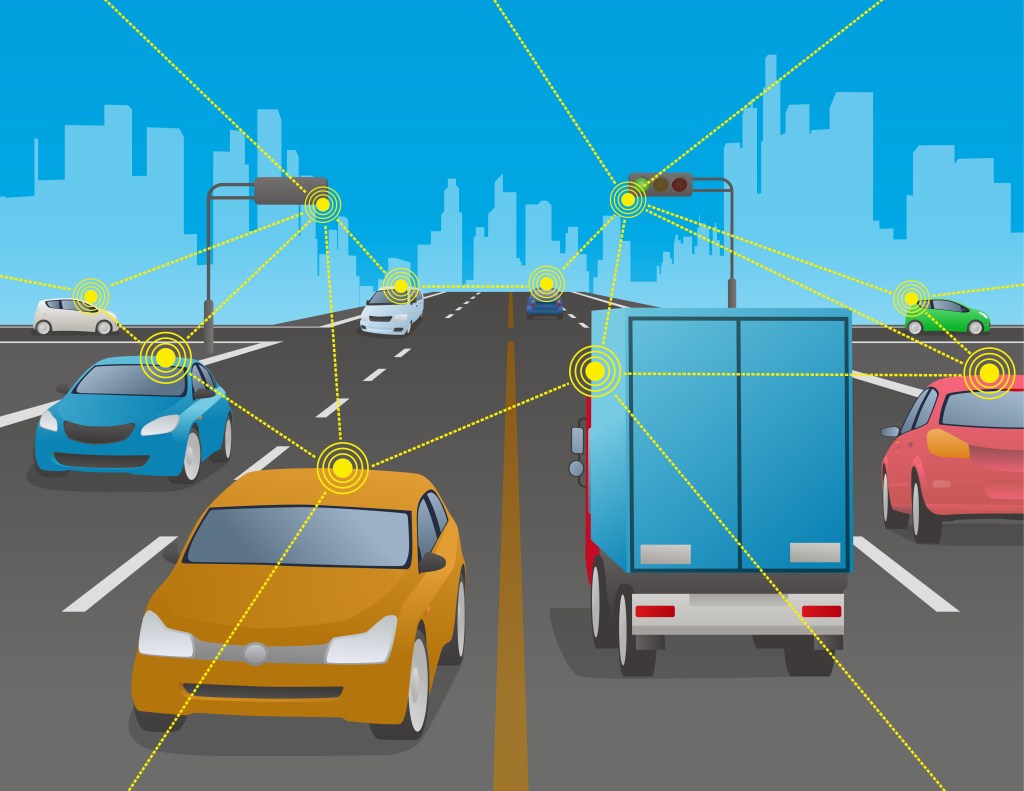A communications test was performed in 1975 between Stanford and University College London for what was to become arguably the most important communication innovation of the 20th century: The Internet Protocol (IP). At its core, IP was focused on speed and simplicity. This required decentralization of ownership of the “web” and resulted in no one owning the Internet, nor the controls and routes used to transmit it.
While there are 75 million servers running the global Internet, there are 1.2 billion cars driving global transportation, with 253 million in the United States alone (the highest per capita rate of any large country). Personal vehicle ownership is grossly inefficient: Cars are estimated to be parked 95 percent of the time. And even with all of the advancement in logistics software, there’s still plenty of unused cargo capacity being moved around on land, sea and air.
There’s a reason the leading global Internet companies are looking at automated driving; they understand the key issue underlying the next web of transportation technology protocol is based on the same decentralization of ownership that created the Internet decades ago.
According to a 2015 McKinsey study, by 2030, 60 percent of the world’s population will live in cities, up from about 50 percent today. Some automotive analysts have gone as far as predicting that on the existing trajectory, there will be 2.4 billion cars by 2030. Traffic and population growth will demand more transportation infrastructure, but many jurisdictions don’t have the funding, or the space, to build additional roads and rail. Connected and autonomous vehicle technologies offer a wiser solution, intended to optimize roadway and resource utilization, potentially saving billions in future infrastructure expansion.
These new modes of transit will be able to route cars via the Internet, reducing overall vehicle ownership, altering urban development patterns, limiting car crashes, increasing fossil fuel efficiency and saving consumers time and money.
Leading the charge is Google (NASDAQ: GOOG) which recently claimed that its fleet of self-driving vehicles logs about 3 million simulated miles every day. Tesla’s (NASDAQ:TSLA) Autopilot service propelled the company past others in the industry, leading Tesla CEO, Elon Musk, to claim his company will have self-driving cars in two years (plus a few years for the approval process).
The combination of increased urbanization (where car ownership is drastically lower per capita) and innovations in car sharing and autonomous driving will have a powerful impact on the way Americans look at car ownership. A recent study from KPMG predicts that in about 25 years, fewer than half of U.S. households will own more than one vehicle, a drop of around 15 percent. The report further claims that for each car-sharing vehicle in use, there are around 10 fewer cars on the road as drivers sell a car or postpone buying one.
And households using car-sharing services reduce emissions by up to 41 percent a year, according to a UC Berkeley study. While these services appear to only be disrupting the traditional taxi model, their true aim is exactly the same as the original goal of the Internet protocol: increased productivity through speed and simplicity. The kicker is that the current crop of drivers won’t be necessary, as they are simply mimicking the eventual autonomous car fleets that these companies will be deploying.
As one of the largest corporate operating costs is moving things cheaply and efficiently from point A to point B, cargo transportation is another arena about to be disrupted by autonomous vehicles. On land, freight trucks dwarf all other modes of transportation in terms of both value and total weight of goods transported. Although versatile, freight trucks come with many problems, including labor shortages and frequent accidents. Plus, many trucks are carrying little to no product as they move across the country.
However, with an Uber-style delivery network, mimicking Internet protocol, all of these problems could be history when each box or container is merely a packet moving along a cable. Companies will be able to place a shipping order online to a delivery service, schedule a driverless truck, fill it with their product and track it as it makes its way to its final destination while making perfectly calculated pick-ups and drop-offs in conjunction with the rest of the fleet.
Individuals in the future will no longer need to own a car; instead, they’ll just micro-rent shared driverless vehicles; and companies will enjoy the same convenience. In a driverless world, corporations will seamlessly and optimally share transport resources with other companies.
Moreover, the fatal and financial costs of human error will be noticeably diminished, if not entirely removed. The invention and implementation of autonomous mass transport protocol will have the same impact on transportation that the Internet protocol has had on communication.
This technology will fundamentally redesign our urban environment in ways we cannot yet imagine, change the way we use raw materials and share finite resources and enable a more efficient future. Make your investments in smart transportation now, and big returns will come along for the ride.































Comment